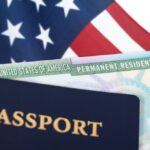As we begin our third year of welcoming Afghan newcomers seeking safety in the United States, the legal needs of the community have shifted as the initial parole periods end and more Afghans obtain other statuses. This blog post summarizes some of the major legal needs of the Afghan newcomer community and shares useful services and resources on this topic.
Family Reunification
Thousands of Afghans had to leave their immediate family members behind when they were evacuated to the United States. As more Afghans are granted asylum and other permanent statuses, a top priority will be petitioning for their family members to join them. Certain Afghans evacuated through Operation Allies Welcome (OAW) may be able to reunite with their spouse and minor children through the Department of State’s (DOS’s) CARE program. To submit an inquiry to CARE, contact CARETravelData@state.gov. If the question relates to Unaccompanied Afghan Minor (UAM) family reunification, also email carefamreunification@state.gov. Asylees and refugees can petition for reunification with their spouse and minor children through the I-730 application.
Re-Parole
The vast majority of individuals evacuated to the United States under Operation Allies Welcome received temporary parole status for a period of two years. If they have not yet applied for asylum or lawful permanent residence in the U.S., most will need to apply for re-parole in order to remain lawfully present in the United States. Switchboard’s Demystifying Filing for Afghan Re-Parole with USCIS webinar and VECINA’s Re-Parole for Afghan Evacuees course can aid providers with this process.
Adjustment of Status
Asylees, refugees, and Special Immigrant Visa (SIV) applicants with approved Chief of Mission (COM) applications are eligible to apply for adjustment of status, which results in permanent residency and a green card. Once granted permanent residency, an individual can live and work in the United States indefinitely. Permanent status in the United States allows Afghan newcomers to call the United States home and provides a pathway to U.S. citizenship.
Continued Employment Authorization
The majority of statuses sought by Afghan newcomers provide employment authorization eligibility. However, such eligibility is not automatic in most cases. As Afghan newcomers change, extend, or adjust their statuses in the United States, it is important to apply for continued employment authorization as necessary. This process can be confusing for service providers, Afghan newcomers, and employers, but the USCIS website and the Immigrant and Employee Rights (IER) website provide guidance.
Asylum
While thousands of Afghan newcomers have already applied for asylum, many thousands still need assistance with filing their applications. Asylum offers protection to certain individuals who would suffer persecution if forced to return to Afghanistan and provides a pathway to permanent status.
Immigration Legal Resources
In partnership with Switchboard, VECINA offers weekly office hours for legal questions related to Operation Allies Refuge (OAR) parolees. These sessions are for lawyers and accredited representatives working at ORR-funded organizations with questions about immigration cases for OAR parolees. Please use this Zoom Link to join the office hours every Thursday from 2:00 – 3:00 PM ET.
Lawyers and accredited representatives working at ORR-funded organizations may also submit technical assistance requests through Switchboard for assistance with immigration cases for Afghan OAR parolees. Technical assistance can include support with a specific case or legal question, as well as individualized training and resources.
Immigration Legal Services for Afghan Arrivals (ILSAA) is a project funded by the Office of Refugee Resettlement (ORR) and implemented by the U.S. Committee for Refugees and Immigrants (USCRI) to provide immigration legal services at no cost to Eligible Afghan Arrivals (EAAs) across the country. EAAs include Afghan humanitarian parolees, unaccompanied Afghan minors, and others with eligible status as defined in ORR Policy Letter 22-01. ILSAA also helps build the capacity of immigration legal service providers (LSPs) to engage in these services.
Additional resources are available here:
- Resource Collection: Legal Services for Afghan Newcomers (Switchboard)
- Resource Collection: Getting Started in Navigating ORR Eligibility (Switchboard)
- What Federal Benefits and Services are Available to Afghan Parolees? (Switchboard)
- Information for Afghan Nationals (USCIS)
- VECINA’s Online Courses:
- Representing Afghan Nationals in Affirmative Asylum Proceedings
- Re-Parole for Afghan Evacuees
- Special Immigrant Visas for Afghans










